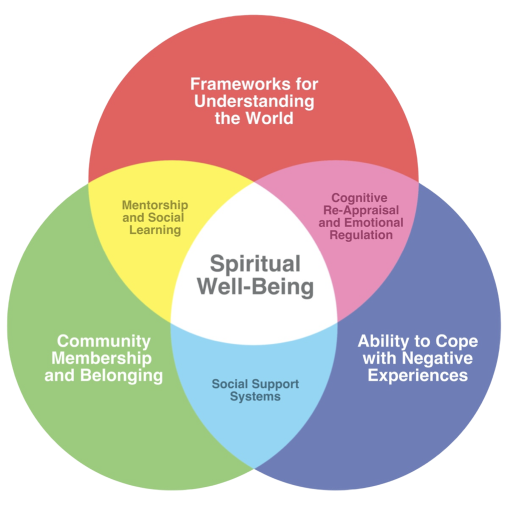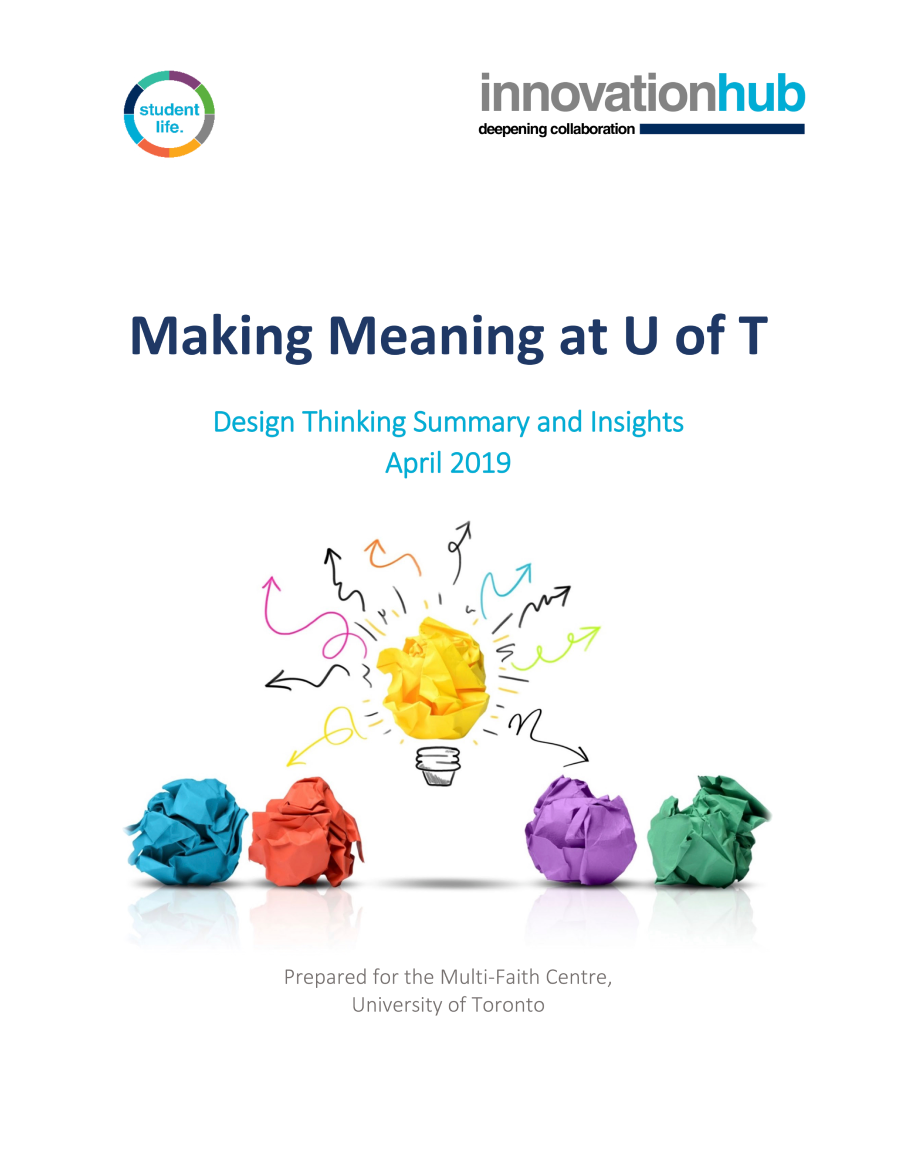Multi-Faith Centre: Making Meaning at U of T
We worked with the Multi-Faith Centre (MFC) to understand students’ needs for spiritual support, across diverse religious identities and groups. Based on direct observations and group and individual interviews, we developed a model for how spirituality supports students, and how MFC can support students’ spirituality.
Fall/Winter 2018-2019
How can the MFC meet the spiritual needs of all students in their search for meaning, purpose, and identity in everyday life?
The Multi-Faith Centre (MFC) is a service provider under the Division of Student Life that aims to “[support] the spiritual well-being of everyone on campus and provide opportunities for people to learn from each other while exploring questions of meaning, purpose and identity”. 1 To better understand how their services are currently being used by students and identify opportunities for improvement, the Multi-Faith Centre partnered with the Innovation Hub to find answers.
KEY FINDINGS
Students are able to make meaning through participation in multiple, intersecting spheres of life
These spheres inform the key themes discussed in this report:
- Community and Belonging
- Finding Purpose and Understanding
- Pursuing Positive Emotional Experiences
- Barriers to Engagement
Each theme is divided into insights, which form the basis for design principles that should be considered when designing future programs, services, and spaces at the MFC.

Community and Belonging: Students overwhelmingly say that their personal networks are essential aspects of their lives, either acting as key support systems, or in some cases, giving life meaning and purpose. Having reliable access to these support systems contributes to increased resilience and psychological well-being.

Finding Purpose and Understanding: When asked about experiences that they found valuable for finding purpose in their lives, students often identified meaningful opportunities as ones that allowed them to learn outside the classroom and broaden their horizons. While these opportunities were sometimes regarded as being beneficial to future goals and informing their personal development, students often referred to the act learning as being valuable in and of itself–especially when presented in opportunities that broke up the monotony of learning through textbooks and lectures. In line with the purpose of the Multi-Faith Centre, students also found meaning through the practice of faith. In all cases, these practices helped students better understand their place in the world and feel connected to a greater purpose.

Pursuing Positive Emotional Experiences: In addition to finding meaning in social connections and purpose-oriented activities, students also value the pursuit of pleasurable experiences which make their lives meaningful. Such experiences can result in personal development and feelings of connection to the world, but also serve to help students manage their stress and “live in the moment.” These experiences can take diverse forms, but we identified three recurring insights that most align with the goals of the Multi-Faith Centre: holistic learning experiences, practising faith and mindfulness, and hobbies and leisure.

Barriers to Engagement: While students are generally receptive to the programming, services, and opportunities offered through the Multi-Faith Centre, they also note that numerous barriers prevent them from engaging as regularly as they may like. While some of these barriers were acknowledged to be unavoidable, others were regarded as small oversights that could be easily amended in the future.
